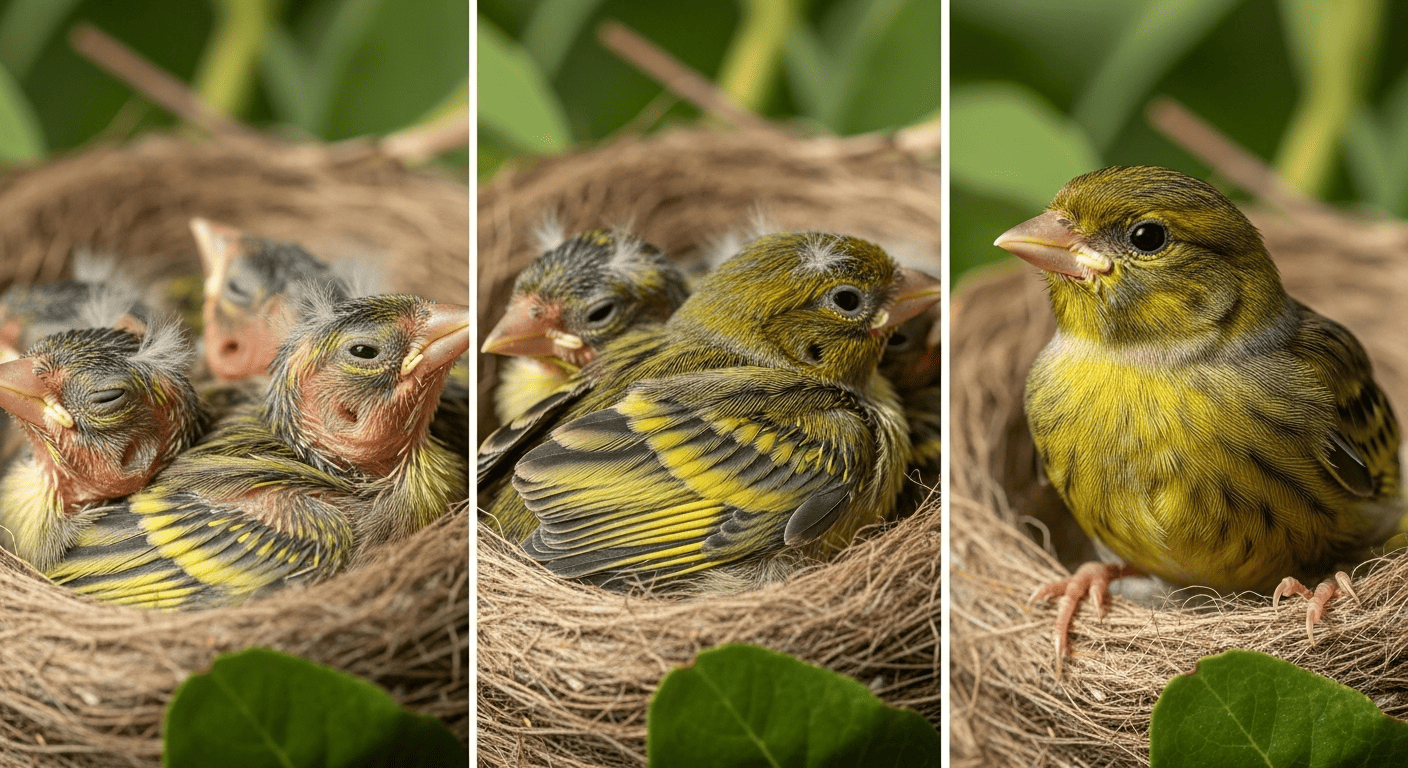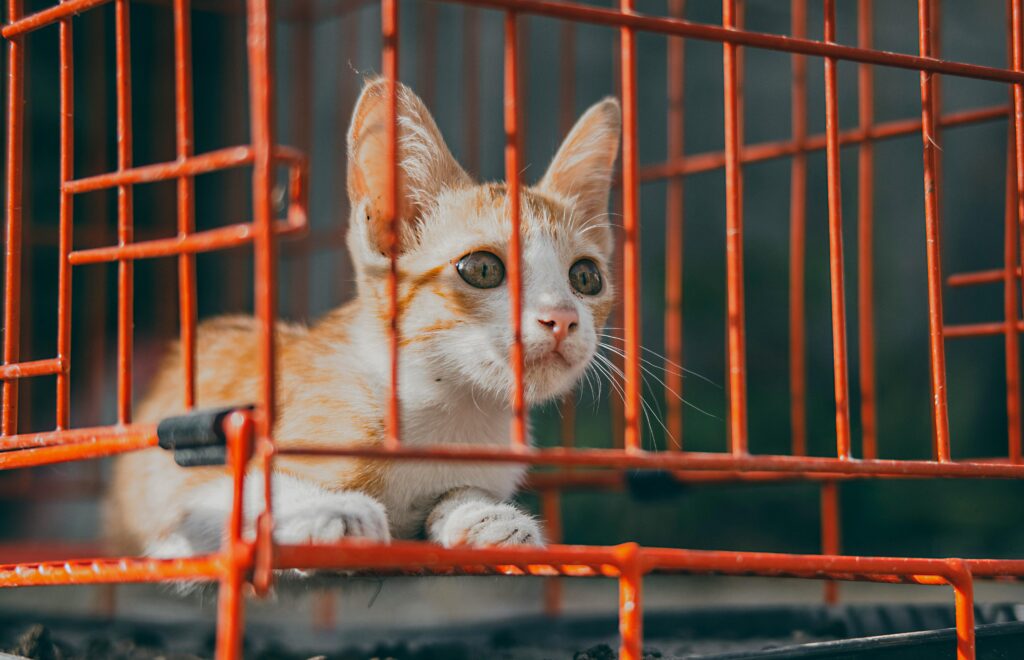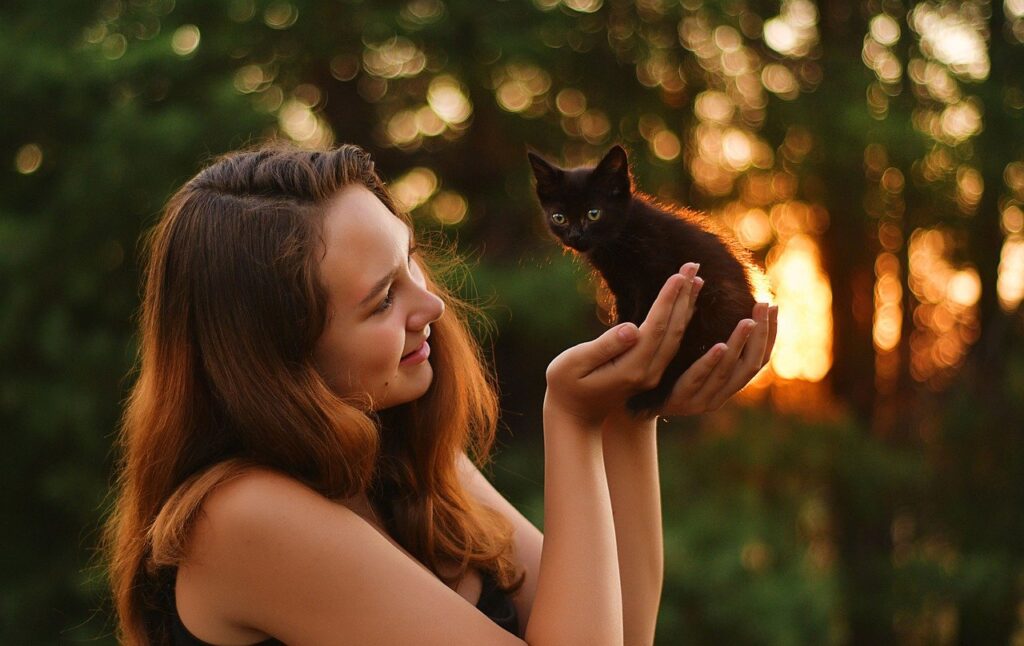Canary Chick Growth Stages
Canary chicks go through several distinct growth stages from the moment they hatch until they are ready to fly. Understanding the stages of canary chick development is vital to bird owners who want their pets to mature into healthy, strong adults. You may be an old hand at owning canaries or a first-time owner, but understanding how to care for your chicks through the various stages of growth is crucial to their survival and well-being.
In this article, we’ll explore the Canary Chick Growth Stages, providing a step-by-step explanation of what happens at every stage. From hatching to fledging, we’ll take you through all the major milestones, and we’ll provide tips for the optimal care.
Stage 1: The Hatching Process
A canary chick begins its life at hatching. This is the first and most exciting stage of development.
Hatching Timeframe: Canary eggs take approximately 12 to 14 days to hatch, depending on the environment of the eggs and canary species involved. Hatching starts as the egg begins to break open, and the chick will emerge from the shell gradually.
Hatching Observations:
- Egg Pipping: It begins with a little break in the eggshell (also known as pipping). It is the first attempt of the chick to get some new air.
- Chick Breaks Free: In a few hours, the chick manages to emerge from the shell completely. It may take anywhere from a few hours to a whole day.
Key Care Tips for the Hatching Stage:
- Maintain the temperature even (between 25-30°C or 77-86°F) for the best chance of successful hatching.
- Avoid disturbing the nest during the hatching of the chicks to prevent stress to the chicks or the mother.
Stage 2: The Early Days (0-7 Days)
Once hatched, canary chicks are in a vulnerable stage of development. During the initial seven days, the chicks rely totally on their parents for warmth, food, and protection.
Physical Development:
- Size: Newborn canary chicks are small, weighing just a few grams. Their eyes are closed, and they possess soft, fine down feathers everywhere.
- Feeding: The parents feed food that has been vomited up to the chicks and provide them with food, primarily seeds and insects. Chicks’ mouths remain wide open all the time for food.
Important Care Tips for the First Few Days:
- Make the nest warm and draft-free.
- Do not feed the chicks yourself at this time except when the parents are not present, since feeding the chicks wrongly will injure them.
Stage 3: The Feeding Stage (7-14 Days)
As the canary chicks grow, they also become more active and their physical needs evolve. This is the stage when they need to build their strong bones and muscles.
Physical Development:
- Size: The chicks are very big by this time. Their eyes start opening at 7 days, and they begin showing signs of developing feathers.
- Feathers: Feathers start developing which are downy soft, but these are not fully formed yet.
- Feeding: The chicks continue to be fed by the parents, who provide them with more solid foods like little seeds and soft vegetables. The chicks also start practicing eating solid foods on their own.
Important Care Tip for the Feeding Stage:
- Ensure the parents continue to feed the chicks, and monitor for underfeeding signs.
- Maintain a healthy and secure environment for the chicks to facilitate their active growth.
Stage 4: Feather Development (14-21 Days)
At two weeks, canary chicks undergo a lot of feather growth. This is when the chick’s actual plumage begins to form.
Physical Development:
- Feathers: During 14 to 21 days, the chicks lose down feathers and are covered with their first actual feathers, though still appearing patchy. Chicks are almost completely feathered at the end of this time.
- Growth: Chicks increase in size, with growth becoming more quickened. Chicks begin hopping inside the nest, testing their legs.
Key Care Tips for the Feather Development Stage:
- Give the chicks a balanced diet that supports feathering, for example, protein and beneficial vitamins.
- Keep the nesting site clean and cozy to support further growth.
Stage 5: The Transition to Fledging (21-30 Days)
As the chicks enter 21-30 days, they begin making the transition from nestling dependents to independent fledglings.
Physical Development:
- Flight Capability: Between 21 to 28 days, chicks will attempt short flights by flapping their wings. This is a crucial canary chick milestone.
- Independent Feeding: Chicks will begin to eat on their own step by step, although they may still be reliant on their parents for some of their nutrition.
- Socialization: Fledglings canaries will commence social interaction with parents and siblings and acquire social behavior and calls.
Essential Care Instructions at the Fledging Stage:
- Give the chicks experience going outside the nest but keeping them safe from injury.
- Monitor their feeding habits and introduce a variety of new foods, including seeds and vegetables.
Conclusion: Encouraging Healthy Canary Chick Development
You need to know the development phases of canary chicks to foster healthy growth and your chicks’ survival. Each phase from hatching through fledging is crucial, and proper care at these phases can rescue your chicks from common issues such as malnutrition or stress. Keep a close eye on your chicks at all times and maintain proper conditions for their growth. If in some cases, it is best to seek assistance from an avian vet too.
By following the above tips and guidelines, you can be certain that you are providing your canary chicks with the best possible beginning in life. With good care, they will develop into beautiful, healthy canaries that will bring joy to your home for many years to come.
Frequently Asked Questions (FAQ)
Q1: How long do canary chicks stay in the nest?
A1: Canary chicks usually remain in the nest for approximately 3 to 4 weeks. They fledge (exit the nest) once they can fly and fend for themselves.
Q2: What do I feed my canary chicks?
A2: Initially, canary chicks are fed by the parents through regurgitated food. Once they grow older, they can be given small seeds, soft vegetables, and ground eggs.
Q3: When do canary chicks learn to fly?
A3: Canary chicks typically master flying at between 21 to 30 days, once they possess fully developed feathers and also have gained enough strength to be able to take off.
Q4: Can I hand-feed my canary chicks?
A4: Have the parents feed the chicks if you can, but if not, attempt hand-feeding them with special chick food or bird formula. Always seek the advice of an expert first before you attempt to hand-feed.

Jalea Stevens, a veterinary student with a heart for animal health, education, and community. As I work toward earning my DVM, I’m especially passionate about making veterinary knowledge more accessible to pet owners and animal enthusiasts. Throughout my journey, I discovered one of my many missions is to bridge the gap between clinical knowledge and everyday pet care empowering others to make informed decisions for the animals they love.





